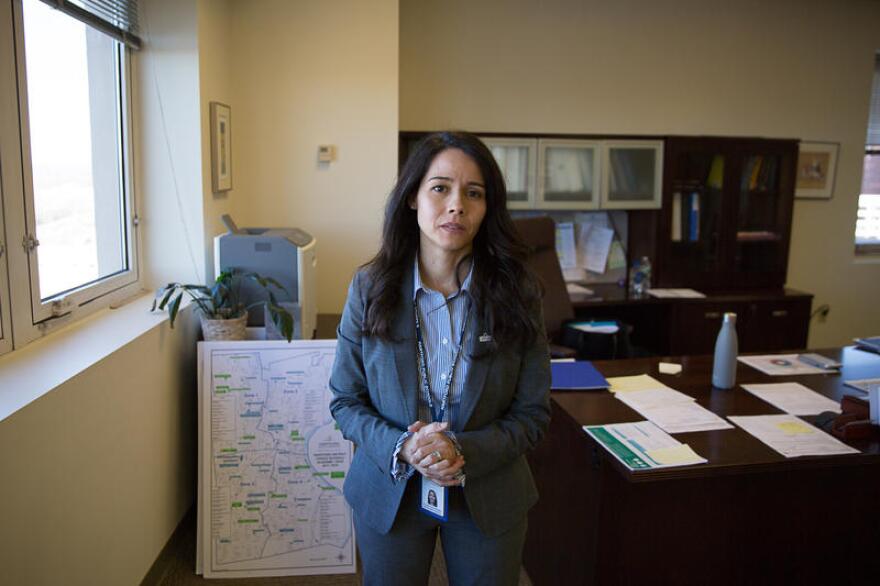Four years ago, Hartford school officials decided to try to reduce the numbers of students being suspended. So they implemented what's known as a "restorative justice" model for discipline, but many teachers report that they haven't been trained on the new practice, and now many students are acting out, with no consequences.
At an April Board of Education meeting, English teacher Tiffany Moyer-Washington said it’s hard for all students to feel safe and valued when those who are acting out make it hard for everyone to learn.
"I think it's impossible to have a district where that happens,” Moyer-Washington said, “when adults are being spat at, sworn at, things are thrown at them, when they're supposed to be the teacher protecting the rest of the students in the class."
Teachers said that students are free to roam the halls with impunity, and that all students are suffering because so much attention is paid to the difficult ones.
Instead of suspending high numbers of students, Hartford has been using restorative justice practices since 2015, which is a system that focuses on mediation and agreements instead of punishment.
But teachers like Moyer-Washington have said that they haven't been trained on best restorative justice practices. At the same time, student misbehavior is going unpunished, Moyer-Washington said.
"I feel like what's happened in this kind-of long transition,” she said, “is we've gone from taking students who we were suspending left and right for all kinds of offenses, to the opposite end of not suspending at all. I'm not saying I'm pro-suspension, I'm pro-consequence."
But many parents at the school board meeting, like Kelly Santana, heard a different message.
"We as parents need to really take a look at the teachers coming from outside of Hartford that don't look like the students they're teaching,” Santana said. “Teachers that need to be escorted to the parking lot at night because they're scared of the neighborhood that they're in. Are they here to teach our children, or are they here to help keep us -- people of color -- suppressed?"
Hartford does have more teachers of color than the state average, but three-quarters of the city’s teachers are white. The percentage of black teachers has remained flat for years. Meanwhile, over 80-percent of the city's student-body identifies as black or Latino.
Parent Jessie Pierce said a lack of cultural knowledge is what's ultimately hurting kids.
"They don't know the black and brown kids, so they say they unruly,” Pierce said. “They don't this, they don't that. These teachers not knowing our children. They not knowing they cultural background, and what we go through every day."
He offered a suggestion on how to fix it.
"Get someone of our own color into these schools so they can teach these teachers,” he said. “They can show these teachers and tell them what's going on in the community. They can look at a child and say something's wrong with that child, not judge him because he's got an attitude."

Some of the teachers who spoke mentioned that they would like more training on how to work with students who have suffered trauma. Hartford schools superintendent Leslie Torres-Rodriguez agreed that more work needs to be done. She said the district has been trying to address this complex problem.
"We still have a long way to go to do the level of deep change that we want,” Torres-Rodriguez said. “We started to do a lot of that work, we're in the middle of doing a lot of that work, challenging work."
She said teachers who get to know students and ask them to share their experiences in class help to build cultural sensitivity and awareness. And not a week goes by when she's not talking to someone about the need for more teachers of color. Recruitment, she says, starts with the kids in Hartford classrooms, who should be encouraged to become teachers.





